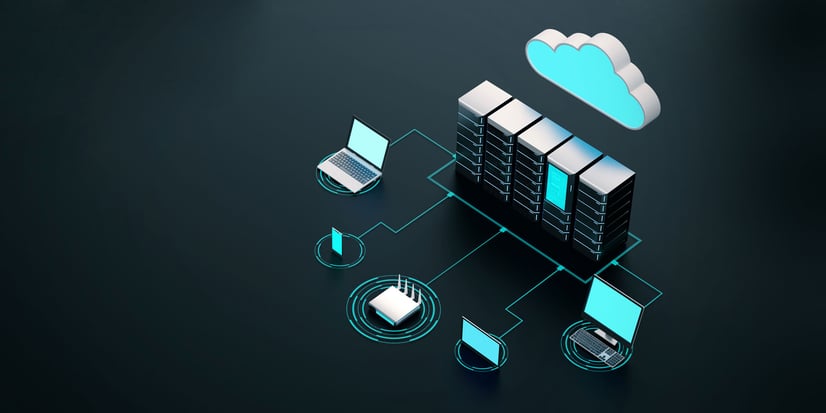4 questions to ask when looking for a cloud provider for your retail business

Many of the retailers who are still running some of their key IT on premises are now seriously considering moving their whole stack to a cloud platform. It makes sense: moving the IT to the cloud has become a necessary step in business transformation. In a recent article, US management consulting company McKinsey underlines how moving to the cloud can help retailers achieve “faster time-to-market, simplified innovation, easier scalability, and reduced risk.” On top of that, cloud platforms also enable retailers to run analytics and achieve intelligent insights that would be unachievable with a traditional IT platform.
When it comes to selecting the right cloud provider, you probably have specific requirements and evaluation criteria that are unique to you. But there are also some common areas to consider when making any service provider assessment. Here are four questions you should ask.
1. What are your certifications and standards?
Look out for providers that comply with recognized standards and quality frameworks. The right provider will adhere to industry best practices, and will have reliable third-party certifications to prove it.
Compliance with international standards like ISO/IEC certifications should give you confidence that your provider is committed to providing a secure and compliant cloud environment for your business. The LS Retail cloud-based services and solutions are all offered via the Microsoft cloud, which leads the industry in terms of the most comprehensive compliance coverage. 95% of Fortune 500 companies run their business on the Microsoft cloud – because it enables them to meet a wide range of regulatory obligations at no effort.
2. Do you have a technology roadmap?
Your technology provider’s platform and technologies must be capable of growing with your business. Can their cloud architectures, standards and services handle your current, as well as your future workloads and management preferences?
Ask the provider about their technology roadmap, and check how it matches up with yours. How do they plan to innovate and grow over time? When deciding a provider, consider important factors such as their commitment to specific technologies or vendors, and how they ensure interoperability. Another critical factor is experience. Can they demonstrate similar deployments to the one you are planning?
Your relationship with a provider will last beyond the selection moment. Find out how they will support you during the migration and implementation process, and afterwards. What support do they offer, and how does this map against your expectations?
3. What is your data governance framework?
The leading cloud providers deliver robust physical security, protecting everything from the virtualization layer down. You’re likely to already have your own data security policy, so make sure that the chosen provider’s capabilities match up with your own policy and, ideally, go above and beyond your requirements.
Look into how your data will be stored and managed. Be aware of regulatory or data privacy rules governing personal data. If you have specific requirements in terms of the location your data resides in, look for providers that give you the choice and control you need.
Critically, your cloud service provider should be transparent about data governance and security policies and their data center locations. Ask about their data loss and breach notification processes, and see whether they marry up with your organization’s risk proneness and legal or regulatory obligations.
4. Who are your partners?
Take the time to find out about your provider’s relationship with key vendors, their accreditation levels, technical capabilities, and staff certifications. If they partner with a leading vendor like Microsoft, what level of partnership do they have? How long have they been in partnership for? Have they won any recent awards for innovation and service quality? This information will help you determine the quality of the service and technology they offer.
Knowing their relationship with key vendors will also help you if you want to integrate existing technologies or plug in new ones. If you select multiple pieces that run on the same technology stack, adding new functionality should be straightforward, and updates and upgrades should be seamless.
Your business is ready for the cloud
An increasing number of retail leaders recognize the critical role of the cloud in facilitating their technological reinvention.
If you’d like to discuss your requirements or understand better what possibilities you have, get in touch with our business experts.